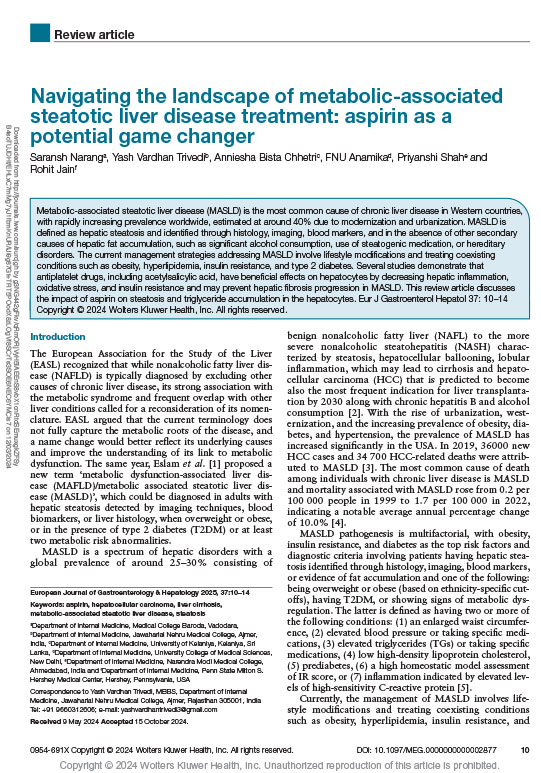Navigating the landscape of metabolic-associated steatotic liver disease treatment: aspirin as a potential game changer
January 2024
European Journal of Gastroenterology & Hepatology
Abstract
Metabolic-associated steatotic liver disease (MASLD) is the most common cause of chronic liver disease in Western countries, with rapidly increasing prevalence worldwide, estimated at around 40% due to modernization and urbanization. MASLD is defined as hepatic steatosis and identified through histology, imaging, blood markers, and in the absence of other secondary causes of hepatic fat accumulation, such as significant alcohol consumption, use of steatogenic medication, or hereditary disorders. The current management strategies addressing MASLD involve lifestyle modifications and treating coexisting conditions such as obesity, hyperlipidemia, insulin resistance, and type 2 diabetes. Several studies demonstrate that antiplatelet drugs, including acetylsalicylic acid, have beneficial effects on hepatocytes by decreasing hepatic inflammation, oxidative stress, and insulin resistance and may prevent hepatic fibrosis progression in MASLD. This review article discusses the impact of aspirin on steatosis and triglyceride accumulation in the hepatocytes.


